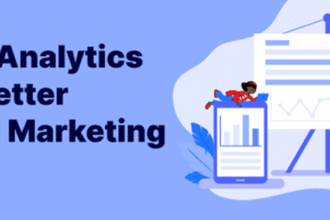Transforming your business into a data-driven enterprise isn’t an overnight project. Even after you figure out what types of data you need, which questions to ask of it and then finalize your expectations on how this data will affect your bottom line, you still have one major task at hand: collection.
Transforming your business into a data-driven enterprise isn’t an overnight project. Even after you figure out what types of data you need, which questions to ask of it and then finalize your expectations on how this data will affect your bottom line, you still have one major task at hand: collection.
And data collection is the most nuanced aspect of big data usage. For instance, had the NSA alerted the public as to what they were going to be monitoring, storing and analyzing from the get-go, Snowden wouldn’t be in Russia — nor is it likely he’d even be a household name. See, at the most basic level, privacy requires only one thing: choice. Take away someone’s ability to say “Yes, I’m cool with this,” or “No, I’d rather not,” and you take away their autonomy. Take away their autonomy and you’ve reduced them to nothing more than a placeholder, a number in your system that lacks engagement, understanding or, worse, humanity.
Take away security and you’ve got a human population of drones. And no matter how many data points you have from drones, truly intellectual insights into who your customers are will be impossible — and, to a large extent, illegal.
But, data collection is essential for companies looking to use big data for big benefits. And no company, nor user, should have to toe the line between acceptable data collection transparency and ideal data ROI. Instead, data rights management needs to be a part of the collection process from day one — so that whistleblowers don’t have a whistle to blow. At Umbel, our activation apps ensure that this is the case.
Activation Apps from Umbel on Vimeo.
Activation apps put the power of smart data collection into the hands of executives, while maintaining user security and privacy. The concept is simple: allow companies to utilize social authentication absolutely anywhere they so chose to collect identity data information in less than half and hour, and without having to involve a tech team.
Launch a contest in a newsletter, and collect the identity data points of all those who enter (with their permission, as provided through social authentication). Throw a party and collect data via the RSVP — providing email notification for those who want to attend and giving you deep intelligence into attendees. Better yet, have users check in via WiFi at the event and see not only who RSVPed, but who actually showed up — then use that data to find lookalike audiences.
And you get to control a user’s experience through the process as well. Craft your own copy, upload your own creative, preview, edit, A/B test — treat your user-facing data collection the way you would your user-facing anything: cohesively, objectively and securely.
Because data collection doesn’t have to be complicated — it just has to work. In real-time, without a tech team, and in a way that secures your audience’s data rights — well, that’s just smart.






